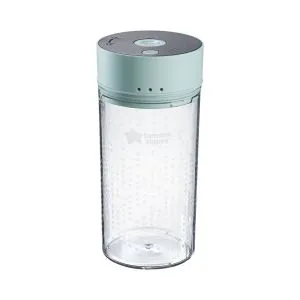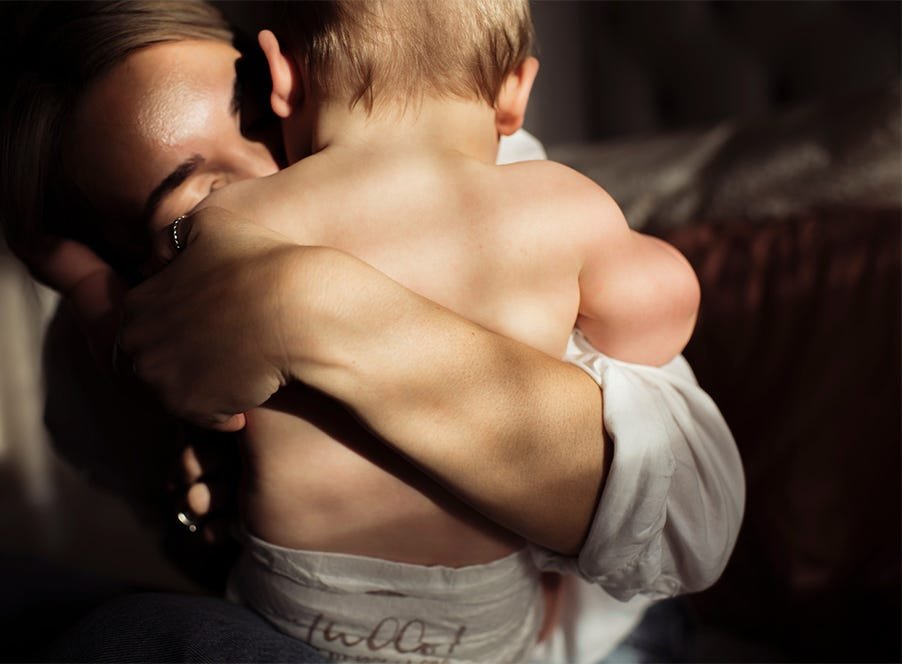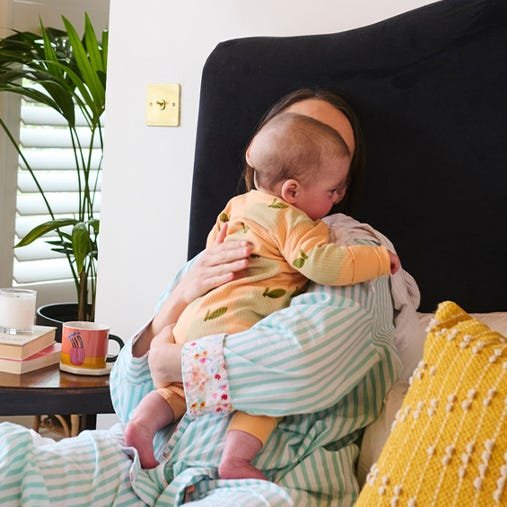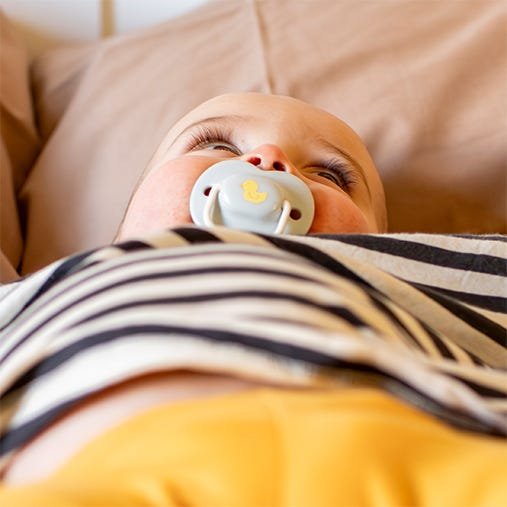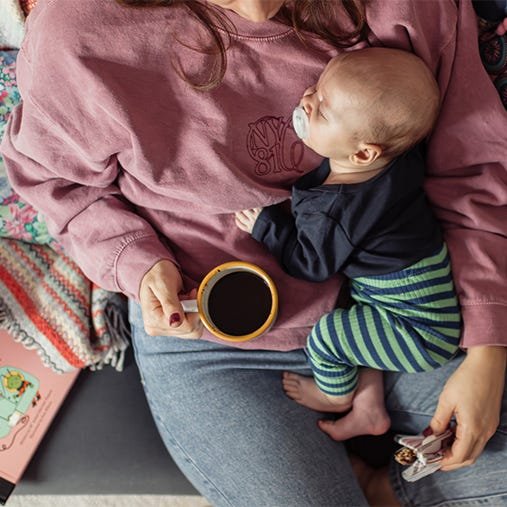A baby's immune system isn't as strong as that of a toddler or young child, and it's very common for babies to get coughs and colds. Most little ones will catch eight or more colds a year because they haven't yet built up immunity to cold viruses.
There are two different types of baby cough, productive and unproductive...
- A productive cough is wet sounding and brings up mucus.
- A non-productive cough is dry with no mucus.
This article is here to help you learn more about baby coughs, to advise you on how to care for your little one when they have a cough, and to let you know when to seek advice from a doctor.
What causes a baby to cough?
There are lots of cold viruses out there. Babies and young children will be especially susceptible to catching these, as they've never been exposed to them before and have yet to build immunity. These are also more common during the autumn and winter months.
What to do for a baby with a cough
There are many ways that you can help soothe your baby and keep them comfortable when they've got a cough.
Hydration
It's important that your baby continues to drink lots of fluids when suffering from a cough.
Humidify the air
If the air in your home is very dry, using a cool mist humidifier can help to ease your baby's cough. If you don't have a humidifier, you can sit with your baby in the bathroom and run a warm shower to let them breathe in the warm steam. But never leave your baby unattended in the bathroom.
Speak to a pharmacist
You can ask a pharmacist for some saline nose drops for your baby. These can help to loosen up and relieve dried snot from your baby's nose if it's a little stuffed up. It's worth noting that you shouldn't give over-the-counter medication to little ones under six months old, unless a advises you otherwise.
How to prevent your baby from catching a cough
We've clarified that coughs are common and that all babies will feel under the weather from time to time, especially if they're attending baby groups or nursery. But there are things you can do to lower the risk of your little one getting poorly. These include...
- washing your and your baby's hands regularly
- using a tissue when coughing or sneezing and putting it in the bin right away
- making sure your baby's feeding equipment is thoroughly sterilised before every use
- not letting your baby share items, such as cups or towels, with another child who has a cold
- keeping doorknobs, countertops, and toys sanitised
